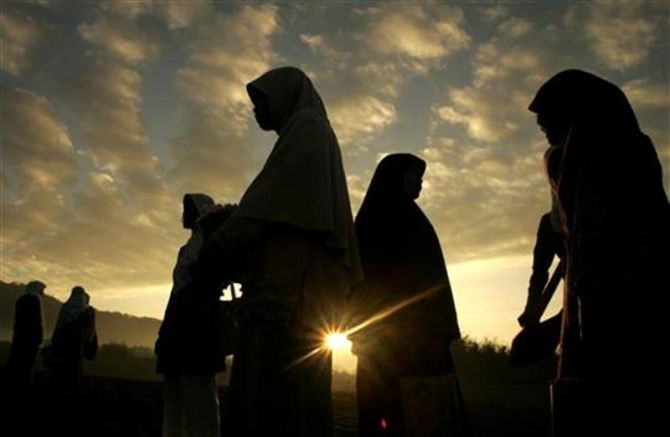Ramadan Fasting not Linked to Preterm Births

In a small new study, pregnant women who fasted during the Islamic holy month of Ramadan were no more likely to give birth prematurely than women who didn't observe the fast.
Lebanese researchers found no significant differences in the rate of births before the 37th week of pregnancy among 201 pregnant Beirut women who fasted during the daytime compared with 201 women who didn't.
The babies of women who fasted were smaller, on average, however, which the researchers called "alarming."
During Ramadan, the ninth lunar month of the Islamic calendar, Muslims abstain from eating and drinking from dawn to dusk.
While fasting is compulsory in Islam, the researchers write in BJOG: An International Journal of Obstetrics and Gynaecology that pregnancy may be "a relative exemption if reasons for maternal/fetal hardship are suspected."
Nonetheless, many pregnant women ask whether it's OK to fast during Ramadan the study's lead author, Dr. Anwar Nassar, told Reuters Health in an email.
Nassar, a professor of obstetrics and gynecology at the American University of Beirut Medical Center, added that other studies have looked at fasting during pregnancy - such as in cases of famine or in experiments with calorie restriction - but this is the first in the English literature to look at the effects of Ramadan fasting, specifically, on preterm delivery.
For their study, Nassar and his colleagues recruited pregnant women from four medical centers around Beirut in August 2008, matching the characteristics of those who planned on fasting with a comparison group of pregnant women who did not fast.
Each woman was followed for the month of Ramadan, whose timing changes each year. It occurred during September in 2008.
All the women were in their third trimester during the study period.
The researchers kept track of the women's health, when they delivered their babies and how much the baby weighed.
Overall, 21 women in each group gave birth before their 37th week of pregnancy, which is considered "preterm."
Three fasting women gave birth before the 32nd week of their pregnancy, compared with one in the non-fasting group, but the researchers say that small difference could have been due to chance.
The babies of fasting women also tended to be smaller than the babies of women who did not fast.
On average, fasting women's babies weighed about 3 kilograms (about 6.8 pounds), compared with the babies of non-fasting women, who averaged 3.2 kilos (7 pounds).
"Although results are reassuring as far as there is no increased risk of preterm delivery, the fact that the mean birth weight was significantly lower in Ramadan-fasted women is alarming," said Nassar.
One possible explanation for the difference in babies' birthweights could be the fact that fasting mothers tended to gain less weight during the Ramadan period - 1.6 kilos, versus 2.3 kilos among non-fasting women.
While the researchers cannot say what a low birth weight could mean for babies later on in life, Nassar noted that it has been linked to heart disease.
Other effects of fasting during pregnancy may not be immediate and there could be other consequences as the child grows, the report adds.
More study is needed on this question, according to Nassar. The fasting period during Ramadan can vary considerably, from 10 to 19 hours, depending on what time of year the holiday falls in, and what part of the globe a woman is in.
Moreover, different cultures in the Muslim world have different traditions regarding feasting at night to break the fast, so it's hard to generalize about the calorie and nutrition intake of all fasting women during Ramadan.
In addition, though the new study included more women than previous research on fasting, a larger number of participants may be needed to detect smaller differences between groups.
The study is published in BJOG: An International Journal of Obstetrics and Gynaecology.



























